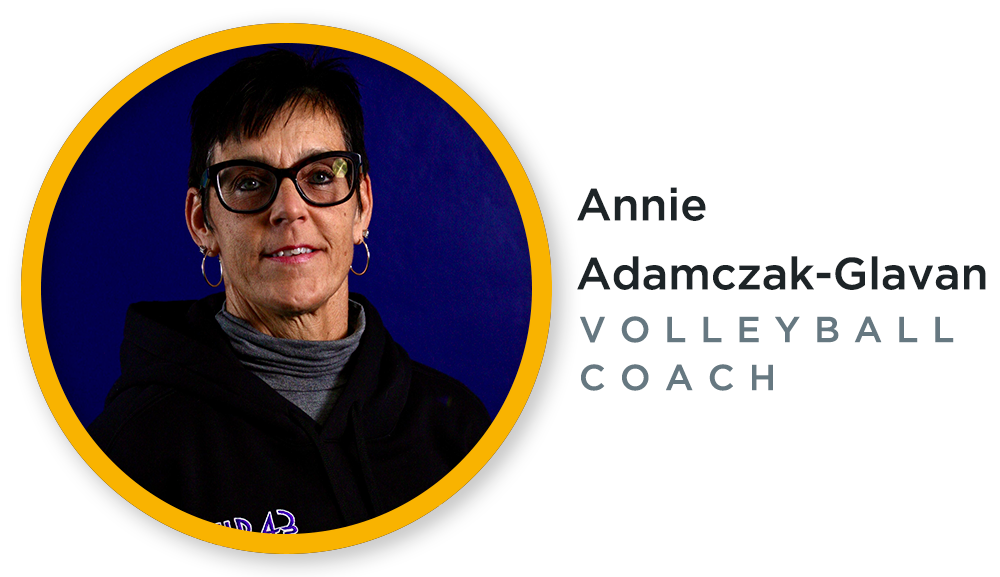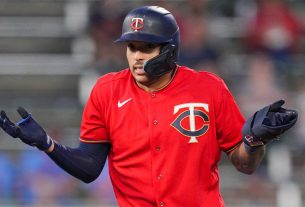This is the fifth article in our “Big Questions in Youth Sports” series. For many parents, there are pressing questions related to youth sports that they just can”t find the right answers to. Sports Engine wanted to provide some insights from youth and high school coaches in different sports, from across the country, who have achieved success and earned a reputation for positively developing student-athletes in different sports.
Here are some of their answers on when a parent should not coach his or her child in sports:
“I don’t know. I coached both my daughters until they were 18 and then on summer breaks. It worked for us, but we had to realize I had two hats — mom and coach — and separate the two.”
“It was the greatest experience of our lives. Just ask them!”
“I do know some parent coaches ruin their kids when they always expect more, push them too much, challenge them in front of the team, and use them as tools in practice – not fair. They are just another player”
Annie Adamczak-Glavan is one of the greatest athletes in Minnesota history, emerging from the tiny community of Moose Lake. In her senior year, she was an All-State player in volleyball, basketball, and softball, with the teams combining for a record of 79-0 and winning state titles in each sport. An All-American at the University of Nebraska in volleyball, she founded Club 43 in Hopkins, and she’s coached at Shattuck-St. Mary’s School, Edina High School, and St. Louis Park High School.

“Another loaded question (laughs). I think this is different for everyone. I think it is important that parents surround themselves with people who are going to ‘Put them in check.’ If Cal Ripken (Sr.) could coach Billy and Cal, I think it certainly can be done. Generally, I think perspective in life and sports is very important. When a player needs a different perspective or viewpoint, it is time to take a step back. In addition, I think when a player starts to reject teaching, rolls his eyes or there begins a different communication with the players compared to their own son, that’s a pretty good indicator to grab some popcorn and chill in the stands.”
Adam Barta is a native of Lake Crystal, Minnesota, and he played baseball at Bethany Lutheran College and the College of St. Scholastica. The founder and a longtime coach with Blizzard Baseball Academy, Adam has helped develop many young athletes who have gone on to play in college and in the pros. An Associate Scout with the Chicago White Sox, Adam was inducted into the St. Scholastica baseball Hall of Fame in 2012.

“Depends on what you mean by “coaching.” A parent should never coach from the stands.”
“But every relationship is different. I coached my son at the varsity level, and it went great”
Greg Berge has been the Boy’s Varsity Basketball Coach at Lake City High School in Minnesota for 17 years. He’s led his program to 10 conference titles and two State Tournament appearances, including a third-place finish in 2019. He’s also coached an assortment of other sports for boys and girls as young as 6 years old.

“So this one’s tricky for me because I’m coaching full-time. I want to have that separation between dad mode versus coach-mode. And he always sees me in that lens as a coach.”
“I really think it comes down to giving ownership to your kids, getting them to own their sport, and giving them the decision, ‘Hey, do you still want mom or dad to coach?’ So I think it comes back to having the conversation with your son or daughter.”
“If the answer is no, then as parents we have to be able to step back and say, ‘Don’t take it personally.’ It’s okay.”
“Just make sure we have that separate dynamic. So when I’m home, I’m all in it as dad mode.”
Matt Booth is the Director of Strength & Conditioning, Assistant track coach, and Dean of Athletics at Canterbury School in Ft. Myers, FL. A high jumper at Wheaton College, he’s worked with athletes who have gone on to play in the NFL, NBA, MLB, and MLS. He was a 2022 Regional Double-Goal Coach® winner by Positive Coaching Alliance.

“Another “depends.” The parent-coach and child dynamic needs to be a healthy one. If a coach-parent has high-level sports knowledge/ experience and it is part of his/ her craft, I think it can be enriching to the relationship. Once practice is over, the coach is now a parent.
“However, if harmony, joy, and learning cannot coexist at home and/ or within sports, that is the time in which to end parent coaching. Sports should not bring stress to a relationship.”
Ruth Brennan Morrey played Division I soccer at the University of Wisconsin, Madison, where she was a co-captain in 1998. In 1999, relatively new to running marathons, Ruth qualified for the 2000 Olympic Marathon Trials with a time of 2 hours, 48 minutes, and 20 seconds. A professional triathlete, she is a Girl’s Head Coach with Minnesota Rush in Rochester, Minnesota, possesses a USSF D license and completed the T1 and T2 courses for TOVO.

“If possible, never coach your child. However if they will not do it without you, I would say 7, which is right when they may be joining a competitive team. Kids need that positive influence at home and sometimes it is impossible to separate being their coach from being their parent.”
Jacob Brown started playing competitive soccer in his hometown of Cullman, Alabama when he was 11 years old. He helped Cullman High to two Final Four appearances in the state tournament and played at Wallace State. He’s led the Cullman High Girl’s Varsity team to four section titles, and he led the West Point High Boy’s Varsity team to its most successful season ever. He is the Director of Coaching for Cullman United Soccer Club, leading three club teams to state titles.

“It depends on the level of the coach. I’ve known high-level coaches who could coach their kids at the high levels without any concerns. Generally, I think a parent-coach should step aside when they can no longer provide for the educational needs of the players, their child included. For some, it can be a challenge, to be honest with themselves about their level.”
Sean Canty was an all-league high school forward who played club soccer throughout his childhood. He has been coaching in the greater Reno and Tahoe area since 1993, mainly with soccer. Currently a coach with Sierra Surf SC and MVLA Reno, Canty holds a USSF C license, and a USYS National Youth license. He’s also completed the T1 and T2 courses for TOVO, a program based in Spain.

“This is a case-by-case basis. It will work for some parents and children but not for others. We have had some parents who have coached their children at our school and one of the main things that I stress to parents is to be fair and not favor their children.”
Chris Cheng played Varsity baseball and basketball at Lowell High in San Francisco. He’s now the basketball and track and field coach at A.P. Giannini Middle School in San Francisco, and he was honored as a 2023 Double-Goal Coach® Regional winner by Positive Coaching Alliance.

“I didn’t have a choice. My kids were going to my school, and I coached them all.”
“But the more serious the sport becomes to that kid, the more they should not coach ’em. They have gotta support ’em, but not coach them. Generally, it’s better for parents not to coach their kids. In most of my experience, (the parent) is not as knowledgeable about the sport as the coach.”
To say Steve DeAugustino comes from a wrestling family would be an understatement: He’s the fourth member of his family to be inducted into the National Wrestling Hall of Fame, thanks to a standout collegiate career at the University of Maryland and 27 years as the Wrestling Coach at Flagler Coast High School, where he’s led the program to three state titles. A three-time selection for Coach of the Year in Florida, he’s coached 11 individual state champions and is respected for his composure and sportsmanship. Now the Athletic Director at his school, Stephen’s son Michael is a two-time All-American at Northwestern University.

“This all depends on the relationship. The answer ranges from never to any age.”
“I coached my son from Little League to Varsity Football. His senior year, we won the state championship. Priceless. I wouldn’t trade that time for anything.”
John “Speedy” Faith played baseball at Oklahoma Christian University, and he was inducted into the New Mexico High School Coaches Hall of Honor in July 2022. The longtime Head Football Coach at Lovington High School, Faith coached Chicago Bears Hall of Fame linebacker Brian Urlacher, among other talented student-athletes, and he led the school to four state championships.

“I think parents should stop coaching their child once he or she reaches high school. At this point in their game development, it’s time to branch out and learn new and different personal and social skills from someone else.”
Mohammed Gubara is the Boy’s Youth Director at Boreal FC in Ramsey, Minnesota, and he’s also the Varsity Assistant Boys Coach at Robbinsdale Armstrong High School. A two-time All-Conference player, Mohammed was a NJCAA Region Champ at Anoka Ramsey Community College. He will be coaching Vlora FC, a Minneapolis-based women’s team that will compete in the UPSL. He’s hoping to earn his U.S. Soccer C License by the summer.

“I don’t believe there’s a set age, as long as the parents realize that this is their child‘s opportunity to play the sport, and not to live vicariously through their child.”
Kurt Hines will head into his 26th season coaching high school football in the fall, and he’s currently the Head Football Coach at Coronado High in California. He also has extensive experience coaching high school football in New Hampshire, winning a Coach of the Year award in 2012 when he was Head Coach of Bedford High.

“Sixth or seventh grade. But it depends on the parent. We have one father that still helps. But he’s very good, and there are two teams at each age bracket, so he works more with the team his daughter is not on.”
“But if we’re really stuck, he knows the girls well enough, he can help.”
“But I think it’s better. Like I had that same problem cuz of my children played for me at school. So it was really hard. I can tell you because they. So much when I coach basketball, they hear about it at all. They hear, so I think it’s hard on, so it depends on the situation, but I think by middle school, if they can have, coaches that aren’t their parents, then they feel like they can make mistakes or they can, they’re not concerned about their parents gonna say when they get in the car. So I, I personally think like the lower kids, I think it’s good. And it’s also. , the parent coach knows. So if the parent really understands the game and is a good coach, then you might want them involved longer. I’ve seen both sides of it, but on the whole, I think if in middle school they can start having, a coach, not their parent, it’s probably a better time.”
Kathy Jenkins started the girl’s lacrosse program in 1976 at St. Agnes School in Alexandria, Virginia. As Head Coach, Jenkins has led the program to a national record of 832 wins, along with 10 state titles, 30 league titles, and 31 conference tournament championships. She’s also founded multiple lacrosse programs and co-owns Triple Threat Lacrosse Camp.

“Depends on the parent and athlete. I have fond memories of bonding with my father as he coached me through 12 years old or so. As I progressed It was nice to have a new voice other than my dad’s. As long as there is a disconnect between the pitch and outside life, I have no issues with parents being coaches as long as all athletes are treated equally and the perception from the other players/parents is not one of nepotism towards the player because their parent is the coach.”
Kyle Kelly has coached girls’ soccer both at the high school and club level in and around the Lake Tahoe region in California and Nevada. He led Truckee High School to three Nevada state high school titles, and he was named Nevada 3A Girls High School Coach of the Year in 2015. Coaching and serving in leadership roles at Truckee River United FC, he’s also coached at Sierra Nevada College and Truckee Meadows Community College.

“I coached my son in high school and my daughters into middle school – I do not believe there is an age as long as parents can separate home life from sports life. The best advice I was given was when my son played high school football for me, “do not go home and discuss football with him. when you are at home you are dad, not his football coach.”
Mike Kirschner had successful runs at two Indianapolis area high schools, including leading Ben Davis High to two state titles. But in 2021, he returned to his alma mater, Warren Central High. Kirschner has coached multiple sports over three decades, starting as a youth football coach in 1984, and he was honored to coach at the Army All-American Bowl in 2015 and 2017. He was also once a MaxPreps finalist for National Coach of the Year.

“Why not? I coached my son all through high school. I coached for 50 years. If people asked me, ‘What was the best aspect of your coaching career?’ I would tell them coaching my son. It was great. The rides back and forth in the car, and a lot of times it wasn’t about football or stuff like that. It was just about life and growing up, and different things like that.”
“I coached my daughter’s track team, and if you’re in it for the right reason, I don’t see a problem with it. But again, that’s me.”
“I’ll tell you this, I think I was harder on them than maybe I was on some of the other kids. My son played a little bit later. Finally, the other coaches had to say, ‘Hey, this kid’s got to get in the game. You can’t, can’t keep him, down here on the JV level.’ It was a lesson we learned.”
Steve Leisz is the Head Football Coach and Head Wrestling Coach at Episcopal High School in Bellaire, Texas, where he’s led the program to four state titles and four runner-up finishes since 2005. An inductee in the Texas High School Hall of Fame, he started his coaching career as a part-time wrestling coach in the 1980s. In 2019, he was a Head Coach in the Army’s All-American Bowl.

“Hard question for me, because my husband and I coach our daughter. We have been co-coaching for 20+ years… Now that is probably another book you could write. We have had success coaching our daughter and our daughter’s peers and friends. So I cannot give you a solid answer on this. Truly, we are very proud to coach our daughter, and she is a pretty awesome kid.”
Megan Magnuson has been coaching girls and boys in middle and high school swimming for over 20 years in and around Rochester, Minnesota. Currently the Head Coach at Rochester Century High School, she is a middle school teacher and has certifications in aquatics, aqua yoga, coaching, cycling, and fitness. She’s also currently competing in triathlons.

“(laughs) I coached my kid from 3rd grade to 12th grade. But what I’m most proud of, in talking to my former players, I never coached my son from the dad perspective. I really was ‘The Coach.’ I was able to put on those two different hats. I don’t think there is a definitive age.”
“What I’ll say is this: You should stop coaching your child when it gets in the way of the relationship of being the father or mother.”
Larry McKenzie has led two North Minneapolis public high schools to a combined six state titles, including a record four straight. A member of Minnesota’s Positive Coaches Alliance, Coach McKenzie is the first Black coach inducted into the Minnesota Basketball Coaches Hall of Fame in 2014. In 2019, he was recognized by the NCAA with the prestigious “Living Legend Award” and a “Guardian of the Game” by the National Basketball Coaches Association.

“When the parent’s knowledge or ability is no longer effective for their child. Balancing both relationships (parent and coach) is difficult but some have made it work to the professional level while others struggle with it from the get-go. Politics also play a huge role as the optics of favors etc… never go away. I never stopped coaching my own kids, but they each play under other coaches as well, and this balance works for us.”
As a youth, Steve Rollins played soccer at the famed Ajax Youth Academy in the Netherlands for two seasons. A Division I fencing athlete at St. John’s, Rollins returned to Ajax as an assistant coach for four seasons, earning the prestigious UEFA B license. He’s currently providing supplemental training for about 50 players in and around Princeton, New Jersey, and serves as a scout for Sports Recruit USA.

“I think if a parent and child have a HEALTHY relationship there is no age limit. If the parent cannot separate “parenting and coaching” then they should never coach their child, in my opinion.”
In March 2021, Don Smolyn retired after 45 years as the Head Football Coach at Lenape Valley Regional High School in New Jersey. The active leader in his state with 348 victories at the time of his retirement, Smolyn led his program to seven state titles and 12 league championships, racking up many notable awards along the way, including the 2021 American Football Coaches Association Power of Influence Award, induction into the NJSIAA Sports Hall of Fame and the 2003 National High School Football Coach of the Year.



